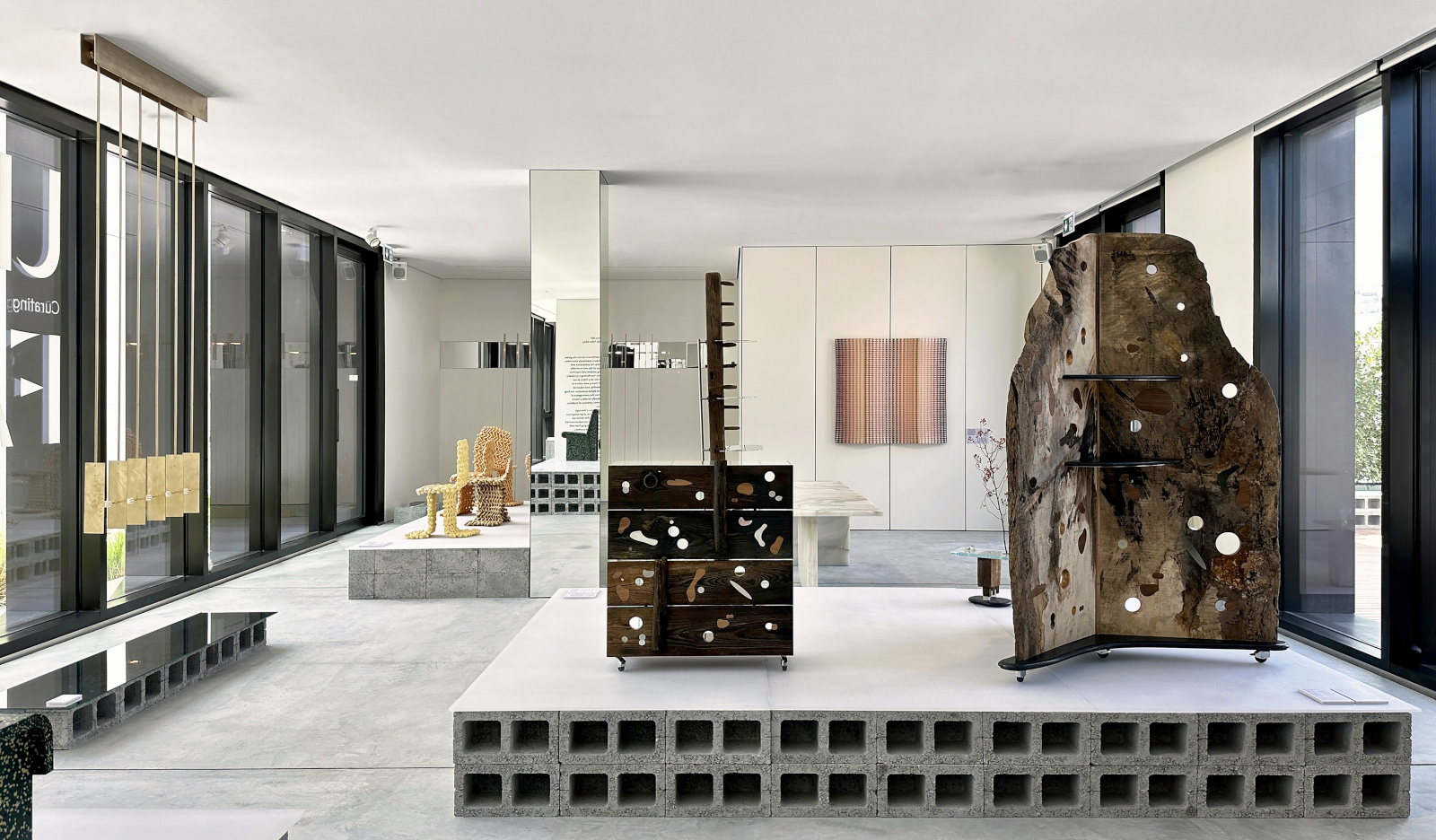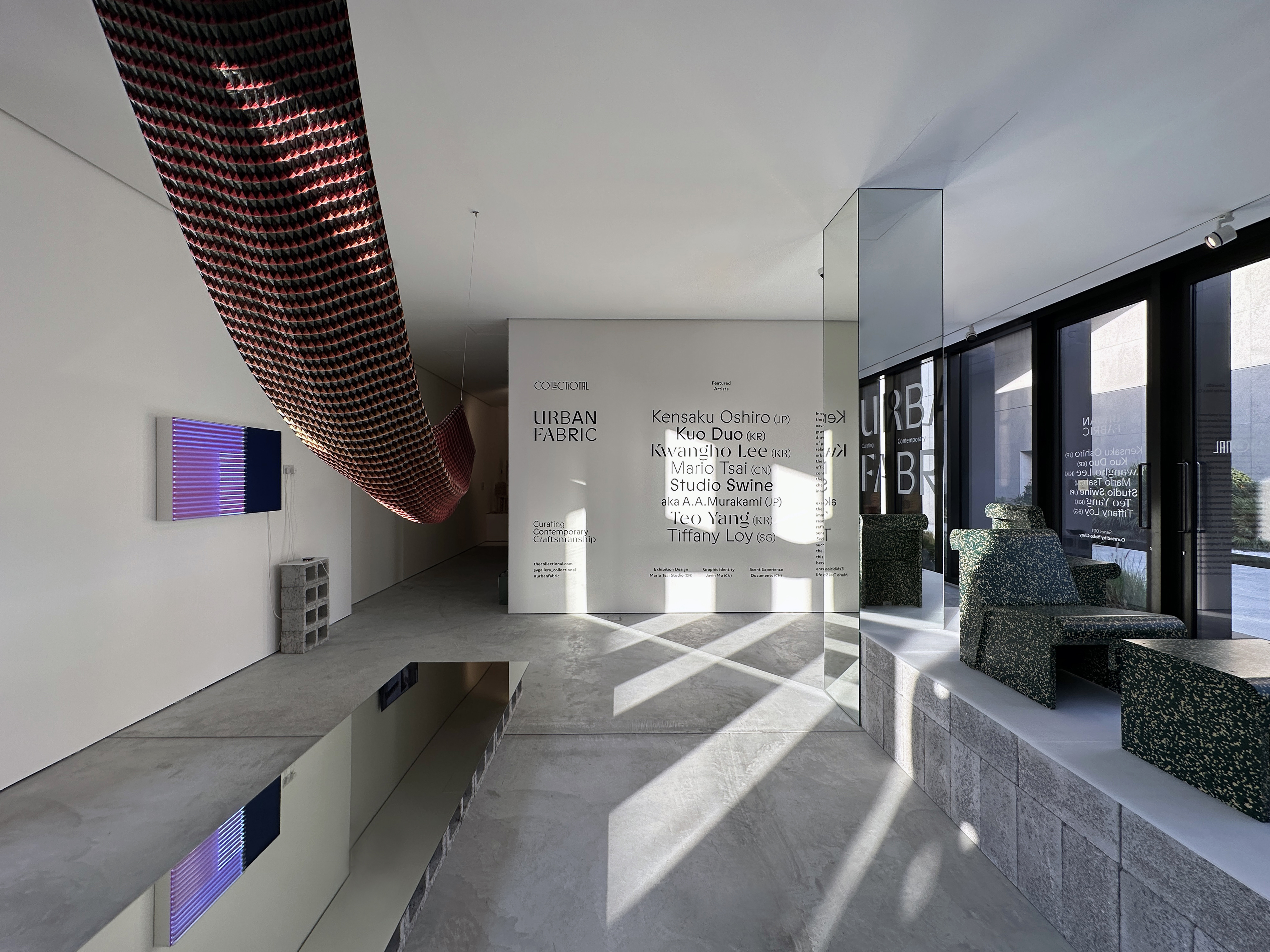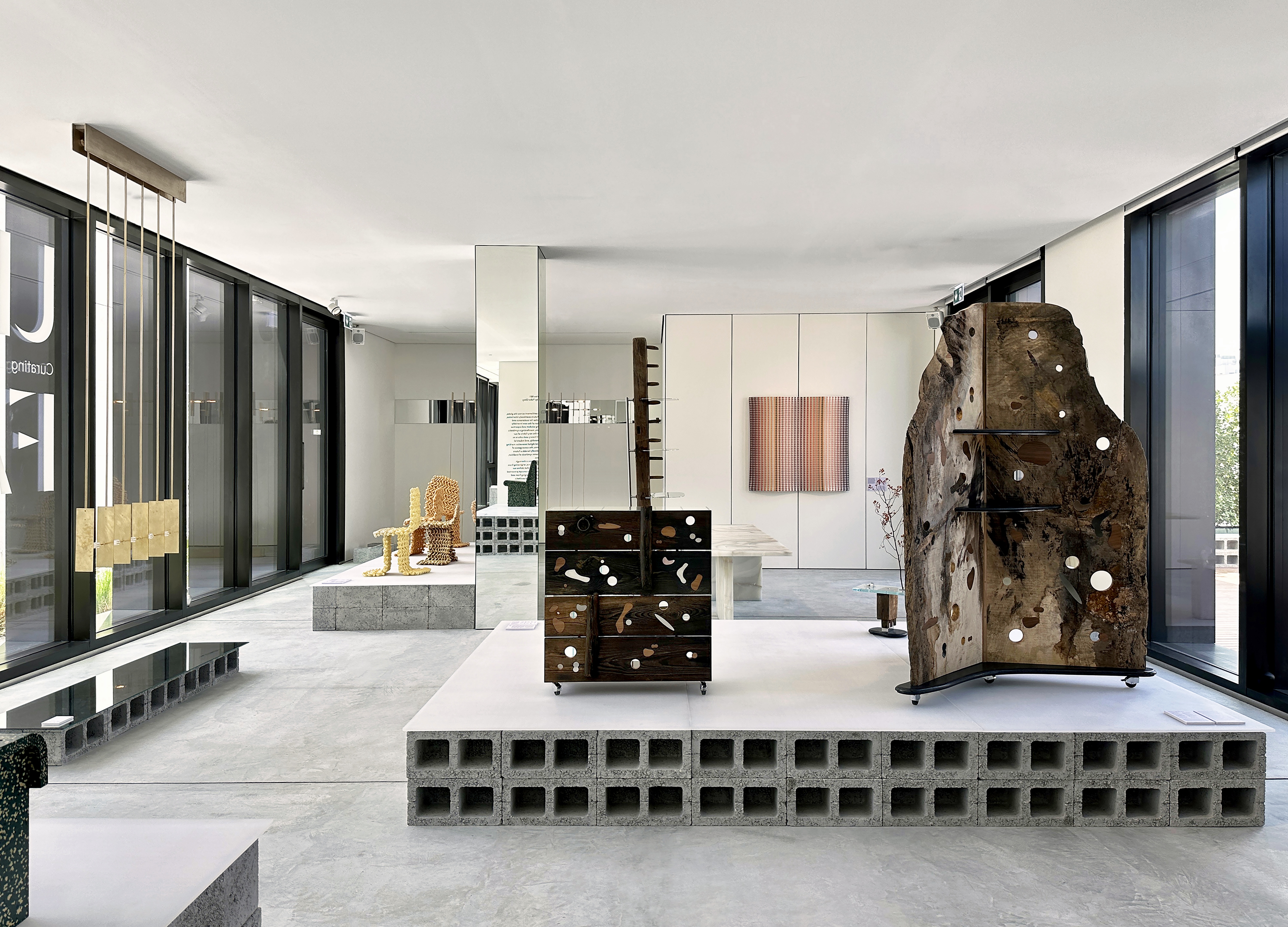
Dubai’s Gallery Collectional is introducing its inaugural commissioned series, Urban Fabric, headed by design specialist (and Wallpaper* China Editor) Yoko Choy. Gathering twenty-eight pieces of collectible design created by artists from China, Japan, Singapore and South Korea, the collection aims to reflect on ‘contemporary craftsmanship’, exploring uses for a multitude of materials in conjunction with traditional artisanal practices from across Asia.
'Urban Fabric' in Dubai

According to Choy, ‘convergence’ is the essential theme of the show. Speaking to the technological acceleration of design practice in global urban environments, where cultures, ideologies and manufacturing techniques are exchanged and feed into the on-going development of the arts, Urban Fabric is engaged thoroughly with the changing nature of materials available to designers and their uses. Showcasing international expertise in working with a range of metals, plastics, glass and ‘virtual elements’, the series aims to capture the constant evolution of design and how we shape the spaces around us; itself a nexus of such progress.
As Choy herself puts it: 'What unites us, from the East to the West, are our experiences in today's built environment. If we examine contemporary urban settlements around the world, we find ourselves surrounded by similar materialities and elements.'

The pieces on display originate from a variety of Asian cultures; sparked from the influence of Choy’s curatorial vision on Gallery Collectional CEO and co-founder Cristiano Baccianti. Following a chance encounter at Milan’s Salone del Mobile, Choy worked to curate a series which went beyond stereotypical and narrow interpretations of so-called ‘Asian design’, to capture the wider breadth of what is being achieved by contemporary designers in the region.
From Japan’s Kensaku Oshiro and his series of crystal furniture, to Singaporean textile artist Tiffany Loy’s hanging silk sculptures, Choy aimed to capture the work of a younger generation of artists, pursuing the development of modern design, without regressive conceptions from the past.

Fellow standouts from the show also include nods to promoting a sustainable design future, deploying unique interpretations of recycled materials and historical debris in a synthesis between the future of global cultures and their past. Choy calls particular attention to the work of Teo Yang, who uses materials from demolished Hanok buildings in Korea to form large sculptural works for interiors, alongside smaller pieces that combine the recycled elements with modern metals and glass, to seat his cultural heritage within a contemporary space.
Likewise, the work by Kuo Duo, a design pair formed by artists Hwachan Lee and Yoomin Maeng, interprets new uses for Korea’s current plastic bag waste, forming furniture that could be used by future inhabitants.

Choy’s vision is ambitious, but nonetheless maintains a focus on sharing the practical solutions that innovative design can offer the world, alongside the development of the next generation of global artists and creators who can rise to its shifting challenges: 'If we agree that design is a tool for problem-solving, then we would agree that despite originating from different cultures and traditions, the problems and questions we face in modern society are universal, and thus designers are creating for a shared future.'
Urban Fabric is on view until 31 March 2024
Eden House, Jumeirah Garden City
41st St
Al Satwa
Dubai









